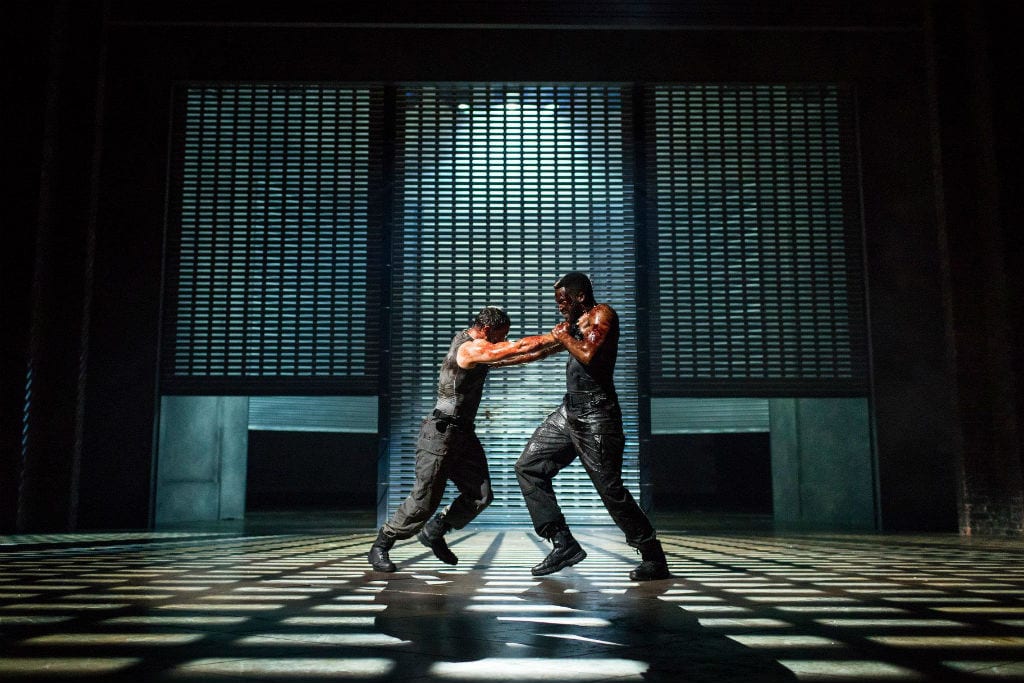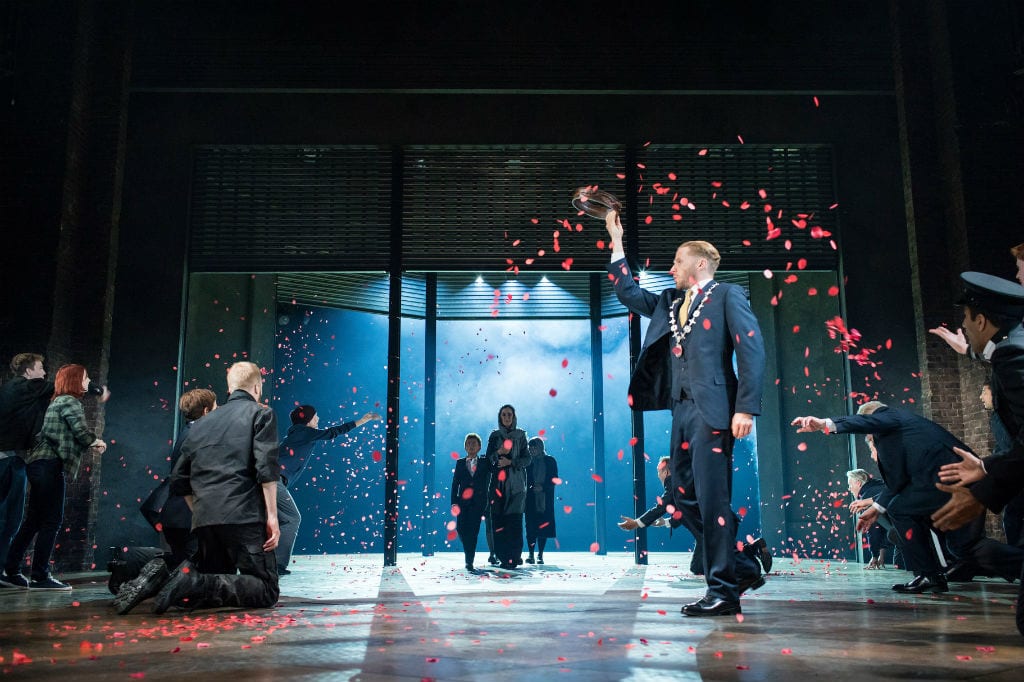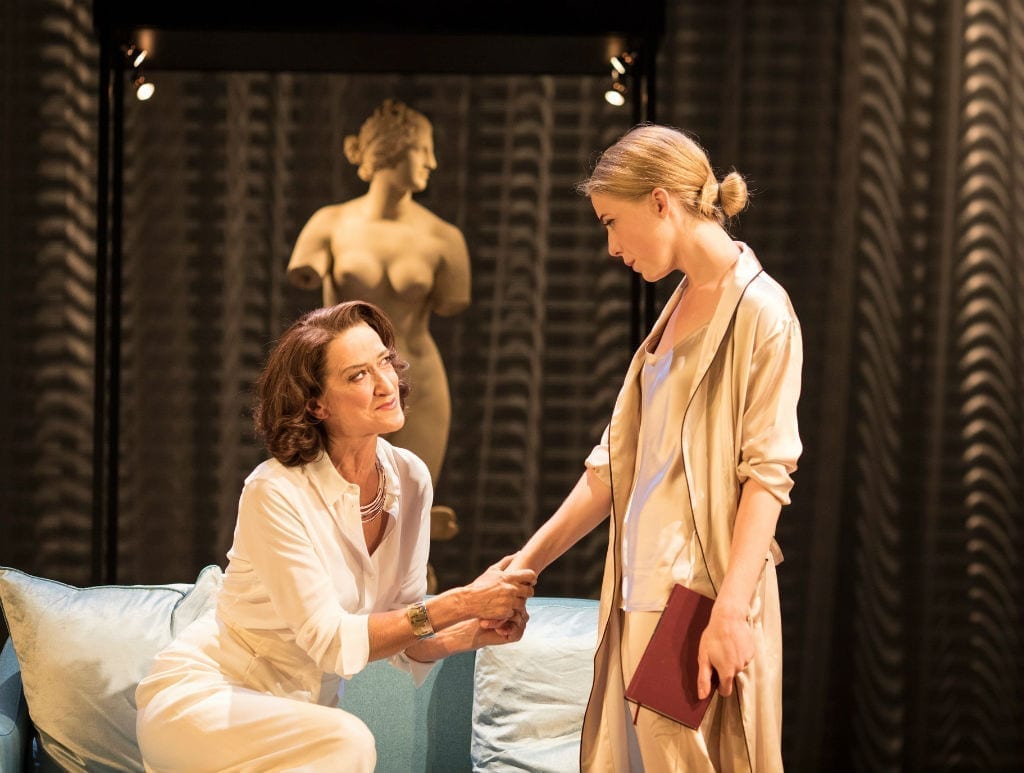Completing its season presenting the four major Roman plays of Shakespeare, this is a Coriolanus that is both emotionally engaging and thought provoking. Set in contemporary times in a design by Robert Innes Hopkins that echoes the designs of the other plays, the point about the politics puts one firmly in mind of the current shenanigans and dysfunctions of governments and plebiscites all over the world. The tribunes of the people are women, strongly played by Jackie Morrison and Martina Laird and, given the contemporary setting, make complete sense of their roles. The ambiguities of the motivations of tribunes and senators, the rivalries and dysfunctions, the class wars, are calmly, coolly presented. But the real crux of the play in this production seemed to me to be the personal relationships circling around the figure of Caius Martius, called Coriolanus, who is played with scary, cold dignity by Sope Dirisu. His character comes across as a typical general, somewhat autistic in terms of human emotion, brilliant at being a soldier but clearly without the capacity to engage in the kinds of smooth diplomacy and ingratiating communication needed by a politician. The admiration for his achievements by his own class, especially by Paul Jesson as Menenius, his mentor and promoter, is clearly conveyed. And when Coriolanus, feeling cold fury at being betrayed by the plebians, turns to James Corrigan’s Tullus Aufidiuss to join with him in revenge upon Rome, the sense of the almost erotic love that Aufidius has for Coriolanus and also the strong bond between the two former enemies, is almost palpable.
But the crucial moment comes when Haydn Gwynne as his mother, Volumnia, brings the wife of Coriolanus, Virgilia, and his child, the young Martius, to plead with Coriolanus to spare Rome. Hannah Morrish, as Virgilia, is a touching suppliant. It is Haydn Gwynne who is one of the central and most memorable characters in this play, a proud noble woman when she first appears, an almost unnaturally close mother as the story progresses, sometimes viperfish, always ambitious, full of a sense of entitlement, and finally a haggard, terrified emotional blackmailer torn between her overweening love for her son in whom she has taken such pride and her desperation about what he is about to do to Rome itself. It is a stunning and very moving assumption of a classic role.
Angus Jackson’s thoughtful production is beautifully considered and centrally focused on the emotional interplay of the various characters that is the heart of this story, their prejudices, hubris and limitations informing the action throughout and especially the unfolding of the tragedy of the proud, blinkered Coriolanus himself.
Coriolanus is playing in the Royal Shakespeare Theatre in Stratford-upon-Avon until 14 Ocober 2017 and then at the Barbican Theatre from 6 until 18 November where it will kick off the transfer of the Roman plays by Shakespeare to London.




